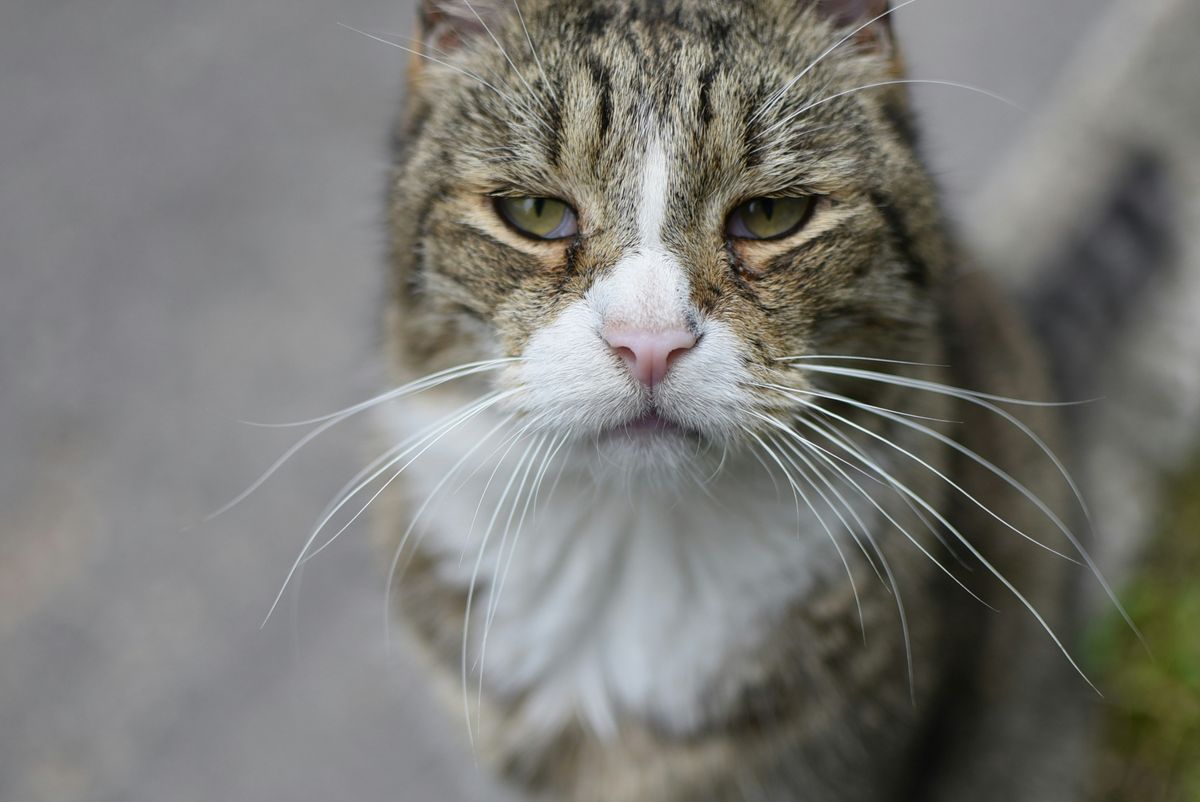
A cat that suddenly becomes weak and refuses to eat can be a source of serious concern for any pet owner. This condition may be triggered by various factors such as stress, environmental changes, minor infections, or more serious diseases like Feline Infectious Peritonitis (FIP).
Loss of appetite is not just a behavioural issue — it is often a sign that your cat’s body is fighting an internal health problem. Understanding the underlying cause and taking prompt, proper action is essential to help your cat recover quickly.
Common Reasons Why Cats Become Weak and Refuse to Eat
Stress and Environmental Changes
Cats are highly sensitive animals. Loud noises, relocation, or the presence of a new pet can easily cause stress, leading them to stop eating.
Solution: Create a calm and stable environment. Avoid sudden changes and give your cat space and time to adjust.
Unsuitable Food
Cats have strong preferences when it comes to taste and smell. Abruptly changing their food brand or flavour can result in rejection.
Solution: Transition gradually by mixing the old and new food over several days until your cat adjusts.
Dental or Oral Problems
Dental issues such as gingivitis, tooth decay, or mouth ulcers can make eating painful.
Solution: Visit a veterinarian for a dental check-up if your cat seems to chew reluctantly or drools excessively.
Digestive Disorders or Infection
Digestive issues like vomiting, diarrhoea, or intestinal infection are common causes of appetite loss, especially in tropical climates such as Malaysia’s.
Solution: Ensure adequate hydration, provide light meals, and seek veterinary advice if symptoms persist.
When a Cat Refuses to Eat for More Than 24 Hours
A cat that refuses food for more than 24 hours is at serious risk. Prolonged fasting can cause hepatic lipidosis (fatty liver disease), which can be fatal.
Additionally, symptoms such as weakness, fever, and dehydration may indicate a serious infection like Feline Infectious Peritonitis (FIP) — a life-threatening viral disease that requires immediate treatment.
Understanding FIP: The Hidden Cause Behind Weak Cats That Refuse to Eat
What Is FIP?
Feline Infectious Peritonitis (FIP) is a disease caused by a mutation of the Feline Coronavirus (FCoV) within the cat’s body. While the original virus is usually harmless, its mutated form can attack vital organs such as the liver, kidneys, and brain as well as the digestive tract. The resulting inflammation weakens the body, reduces energy, and causes loss of appetite.
Common Signs of FIP
According to data from BasmiFIP Malaysia, the most frequent symptoms of FIP include:
Significant loss of appetite
Rapid weight loss
Persistent fever unresponsive to antibiotics
Swollen abdomen due to fluid accumulation (wet FIP)
Dull, yellowish, or cloudy eyes
Wobbly and unbalanced gait
If your cat exhibits two or more of these symptoms, contact a veterinarian or BasmiFIP Malaysia immediately for further assessment and diagnosis.
Why Cats with FIP Refuse to Eat
Loss of appetite in cats with FIP is caused by a combination of:
Inflammation of internal organs that disrupts digestion.
High fever and body pain, making eating uncomfortable.
Liver and kidney dysfunction, leading to nausea.
Weak immune response, resulting in severe fatigue.
A cat that refuses to eat is not being stubborn — it is physically unable to digest food due to the progression of the disease.
How to Treat a Sick Cat That Refuses to Eat Due to FIP
Treatment with GS-441524 (FIP Antiviral Therapy)
GS-441524 is currently the most effective treatment for FIP and for cats showing symptoms such as weakness and refusal to eat or drink.
This antiviral compound works by inhibiting FIP Virus replication inside the cat’s body, allowing the immune system to recover.
BasmiFIP Malaysia is the official provider of GS therapy in the region, offering:
Original GS medication (injection and oral)
Customised dosing based on body weight
Continuous blood test monitoring
Full treatment guidance until recovery
Many cats across Malaysia and neighbouring countries have made complete recoveries under BasmiFIP’s professional supervision and guidance.
When to Contact BasmiFIP Malaysia
If your cat shows signs of illness, always seek a veterinary diagnosis first, as similar symptoms can occur with other diseases. A professional examination and laboratory testing are essential to confirm whether Feline Infectious Peritonitis (FIP) is present.
You should consult a veterinarian immediately if your cat:
Has not eaten for more than 24 hours
Appears weak and feverish
Experiences rapid weight loss
Has a swollen abdomen or laboured breathing
Early diagnosis and timely treatment can increase the survival rate by over 92% with the GS-441524 therapy.
Frequently Asked Questions About Cats That Refuse to Eat and FIP
Is every cat that refuses to eat suffering from FIP?
Not necessarily. However, if appetite loss is accompanied by persistent fever, lethargy, and abdominal swelling, FIP should be suspected.
How can I help my cat that refuses to eat because of FIP?
Begin GS-441524 therapy under veterinary supervision and guidance from BasmiFIP Malaysia.
Is GS therapy safe for all cats?
Yes. When properly dosed according to body weight, GS therapy is safe and highly effective.
How long does GS treatment take?
On average, treatment lasts about 84 days (12 weeks), depending on the cat’s condition and response.
Can FIP return after treatment?
Recurrence is very rare if therapy is completed as prescribed and follow-up care is maintained.
Where can I get genuine FIP medication?
Authentic GS-441524 is only available through BasmiFIP Malaysia, the official and verified FIP treatment provider in the region.
Conclusion
A cat that is weak and refusing to eat should never be ignored, as it may signal a serious disease such as FIP. With timely diagnosis and the correct treatment using GS-441524, many cats have achieved full recovery.
BasmiFIP Malaysia provides comprehensive guidance, genuine medication, and professional treatment monitoring to ensure your cat receives the best possible care.
For free consultation and full FIP treatment guidance, contact BasmiFIP Malaysia through:
Instagram: @basmifip



